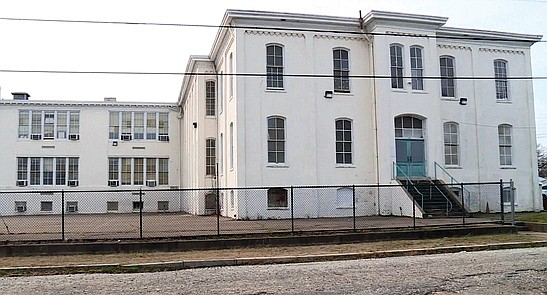VCU drops Moore Street School day care project
Jeremy M. Lazarus | 11/12/2020, 6 p.m.
Virginia Commonwealth University apparently has dropped its $5 million plan to transform the historic, but deteriorating Moore Street School in the Carver community near Downtown into a day care and child development center for pre-school children.
One of the key reasons: Richmond Public Schools’ failure to keep its promise to transfer the building’s ownership to the city so that City Council could sell it to the VCU School of Education for $1.
Jerome Legions, president of the Carver Area Civic Improvement League, said Sunday that the dean of the school, Dr. Andrew P. Daire, notified him that the project is being abandoned because it is taking too long to gain needed approvals.
“This was a good project that would have benefited the community, and it is a real shame that it will not be moving forward,” Mr. Legions said.
Dr. Daire confirmed Monday that the project is no longer on the agenda of the VCU School of Education. The proposal fell through for various reasons, he stated, including “cost, the timeline and a more challenging process than anticipated.”
Moore Street School opened in 1887 as the first building the city erected for the education of Black students. Located at 1113 W. Moore St., the essentially vacant but stately, two-story building is attached to the current and more modern Carver Elementary School that faces Leigh Street.
Moore Street School was officially closed in 2000, although some space previously was used for recreation for Carver students and for other purposes. At one point, the Carver Area Civic Improvement League had been granted permission to turn it into a community center, but the league was never able to raise the money to make it happen.
Dr. Daire, looking to expand the school’s child development program on the VCU campus that primarily serves children of faculty and staff, began talking in 2019 with city and school officials about obtaining the building. The talks included the area’s City Council representative, outgoing 2nd District Councilwoman Kim B. Gray.
He indicated VCU was prepared to invest up to $5 million to improve the building to serve 148 children ages 18 months to 5 years, including 60 children associated with VCU and 40 other children associated with community residents.
As part of the deal, 48 children were to come from lower-income families in the Gilpin Court and Carver neighborhoods whose out-of-pocket costs largely would be eliminated if they qualified for government subsidies for day care.
VCU also pledged to undertake efforts to improve literacy for those 48 children and the adults in their lives. The plan called for offering parents financial literacy and workforce programs, assisting them with job searches and providing other programs that would increase individual and family well-being, such as couples and relationship education.
Amid concern about the slow-moving talks with the school administration, Ms. Gray and Mr. Legions began speaking out last December to encourage a faster pace.
Ms. Gray warned then that VCU could walk away without faster movement.
In early February, the Richmond School Board voted to endorse VCU’s plan, authorized the administration to sign a final deal with VCU and directed the administration to start the process to transfer Moore Street School ownership to the city.
Nine months later, there is no evidence in the public record that the deed transfer took place during the disruption created by the COVID-19 pandemic. The School Board has not approved a quit-claim deed that would allow the title transfer to the city.
As of Monday, the building is still listed as being under the ownership of Richmond Public Schools and part of the Carver campus. There is no evidence of issuance of any requests seeking proposals for an adaptive re-use for the building. And no ordinance or other paper has been introduced at City Council to authorize the sale of the building to a third party, according to the City Clerk’s online record system.
“The community was on board and everything seemed to be in place,” Mr. Legions said. “VCU has the resources to get this done. Now it’s back to the drawing board to find another party who wants the building for a purpose that is compatible with the residents.”







